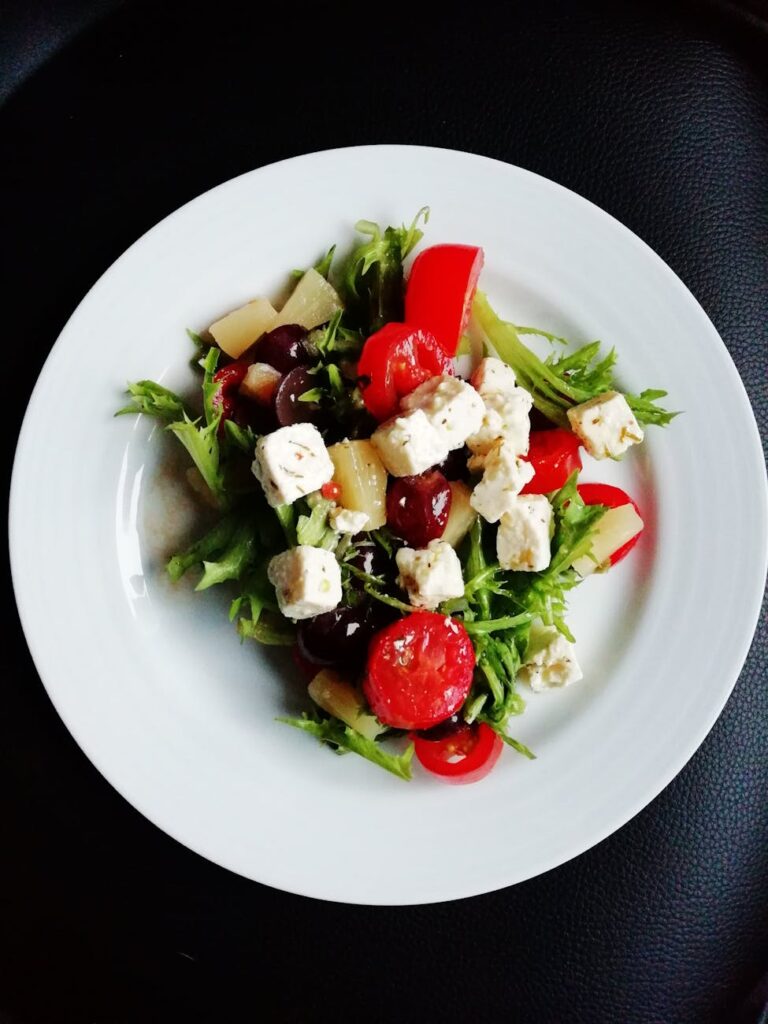By A. Geri
Bulgarian cuisine, deeply rooted in Eastern European culinary traditions, is a delightful blend of hearty and flavorful dishes, reflecting the country’s diverse cultural influences and rich agricultural heritage. Central to Bulgarian cuisine is the use of fresh, locally-sourced ingredients, including an abundance of vegetables, dairy products, and meats.
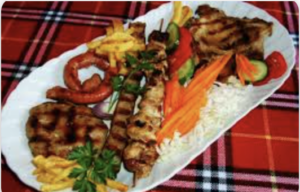
A staple in many meals is the Bulgarian yogurt, renowned for its unique taste and health benefits, often paired with dishes like banitsa, a savory pastry filled with cheese and eggs. Another quintessential dish is shopska salad, a refreshing combination of tomatoes, cucumbers, onions, peppers, and sirene cheese, embodying the vibrant colors and flavors of Bulgarian produce.
Grilled meats, such as kebapche and kyufte, showcase the Eastern European love for char-grilled flavors, often accompanied by rich stews like kavarma. The cuisine also features a variety of hearty soups, with tarator, a cold cucumber and yogurt soup, being a summer favorite.
1. Banitsa (Баница)

Banitsa is a beloved Bulgarian pastry made of layered filo dough filled with a mixture of eggs, yogurt, and white brined cheese (sirene). It’s often enjoyed as a breakfast dish or a snack and can be served hot or cold. Variations of banitsa include fillings such as spinach, leeks, or pumpkin, and it is sometimes prepared with fortune slips for special occasions like New Year’s Eve.
Ingredients:
- Filo pastry sheets
- Eggs
- Yogurt
- White brined cheese (sirene)
- Butter or oil
Preparation: The filo sheets are layered with a mixture of beaten eggs, crumbled cheese, and yogurt, then baked until golden brown and crispy.
2. Shopska Salad (Шопска салата)
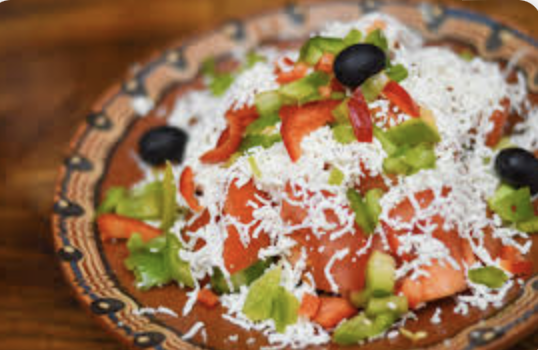
Shopska salad is a fresh and vibrant salad that is quintessentially Bulgarian. It’s made from tomatoes, cucumbers, onions, peppers, and white brined cheese, and is typically dressed with sunflower oil and vinegar. This salad is a perfect accompaniment to any meal and is especially popular in the summer months.
Ingredients:
- Tomatoes
- Cucumbers
- Onions
- Green or red peppers
- White brined cheese (sirene)
- Sunflower oil
- Vinegar
- Parsley (optional)
Preparation: Chop the vegetables into small pieces, crumble the cheese on top, and dress with oil and vinegar.
3. Kavarma (Каварма)
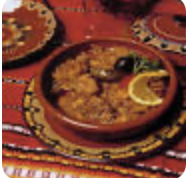
Kavarma is a hearty and flavorful stew made with tender pieces of pork or chicken, onions, peppers, tomatoes, and a mix of spices. This dish is traditionally cooked in a clay pot, which enhances the flavors and helps retain moisture.
Ingredients:
- Pork or chicken
- Onions
- Peppers
- Tomatoes
- Mushrooms (optional)
- White wine
- Paprika
- Black pepper
- Bay leaves
- Salt
- Oil
Preparation: The meat is sautéed with onions and peppers, then simmered with tomatoes, wine, and spices until tender and flavorful.
4. Tarator (Таратор)
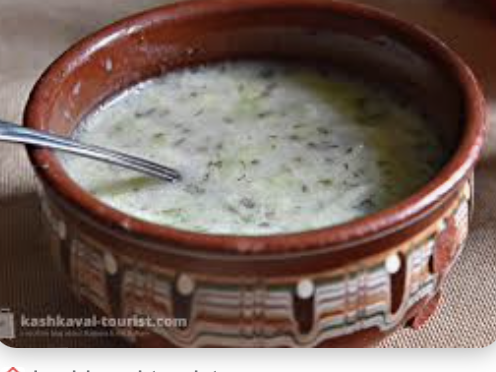
Tarator is a refreshing cold soup made from yogurt, cucumbers, garlic, dill, and walnuts. It’s especially popular during the hot summer months and is known for its cooling properties and health benefits.
Ingredients:
- Yogurt
- Cucumbers
- Garlic
- Dill
- Walnuts
- Water
- Salt
- Sunflower oil
Preparation: Cucumbers are finely chopped or grated and mixed with yogurt, crushed garlic, dill, and ground walnuts. Water is added to achieve the desired consistency, and the soup is served chilled.
5. Moussaka (Мусака)
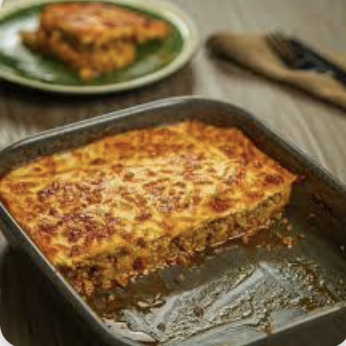
Bulgarian moussaka is a baked dish that differs from its Greek counterpart by using potatoes instead of eggplant. It consists of layers of potatoes and minced meat, typically beef or pork, topped with a creamy yogurt and egg sauce.
Ingredients:
- Potatoes
- Minced meat (beef or pork)
- Onions
- Tomatoes or tomato paste
- Yogurt
- Eggs
- Salt
- Black pepper
- Paprika
- Oil
Preparation: The potatoes and meat are layered in a baking dish, covered with a mixture of yogurt and eggs, and then baked until the top is golden and the dish is cooked through.
Bulgarian cuisine offers a diverse and delicious range of dishes that reflect the country’s rich cultural history and natural bounty. From the savory pastries of banitsa to the refreshing tarator soup, these traditional meals provide a taste of Bulgaria’s culinary heritage. Whether enjoyed at home or in a local tavern, these dishes are sure to delight an satisfy.Influenced by its neighbors, Bulgarian cuisine shares similarities with Greek, Turkish, and Serbian dishes, yet maintains its unique identity through distinctive spices and preparation methods, offering a delightful exploration of Eastern European gastronomy.
